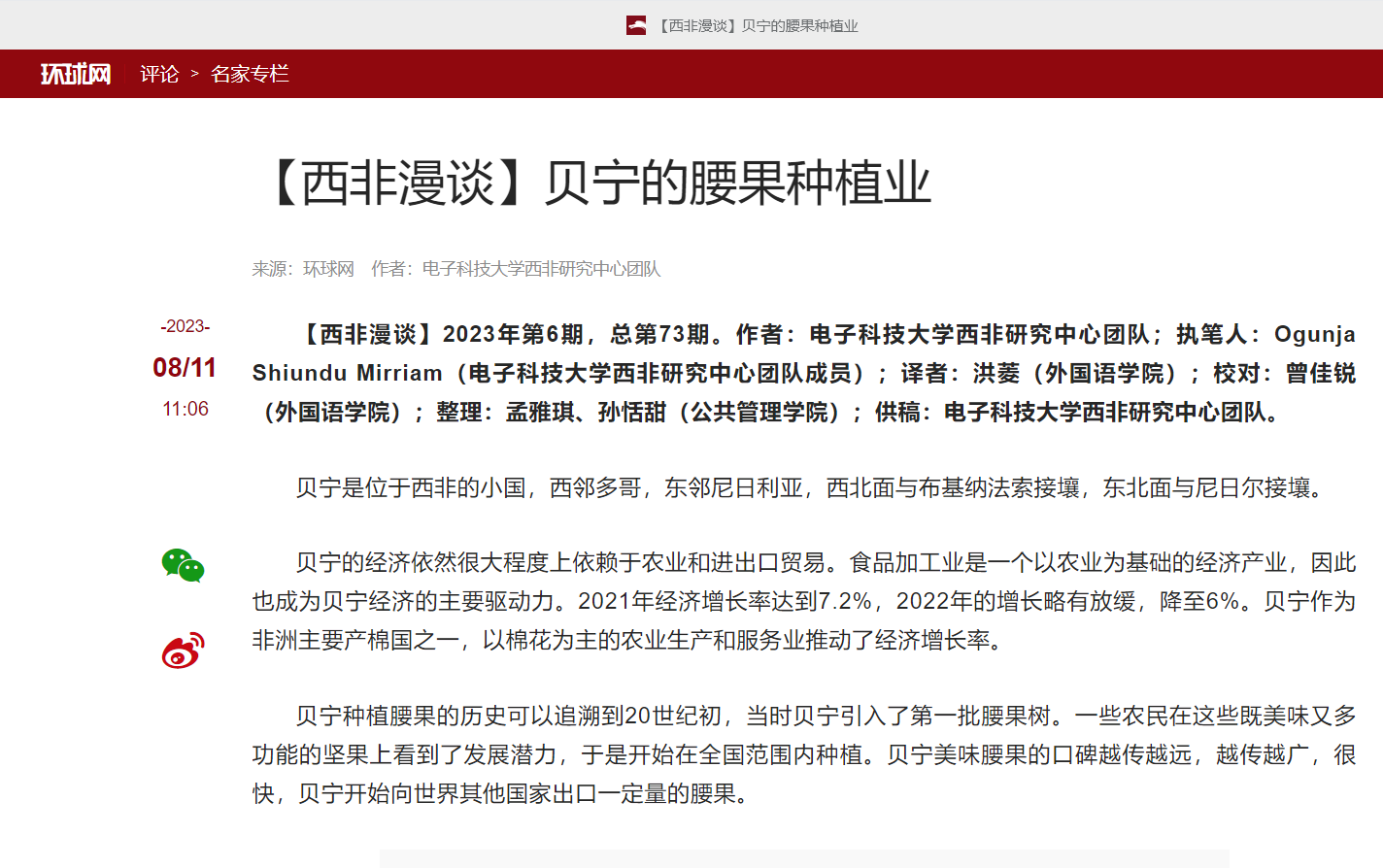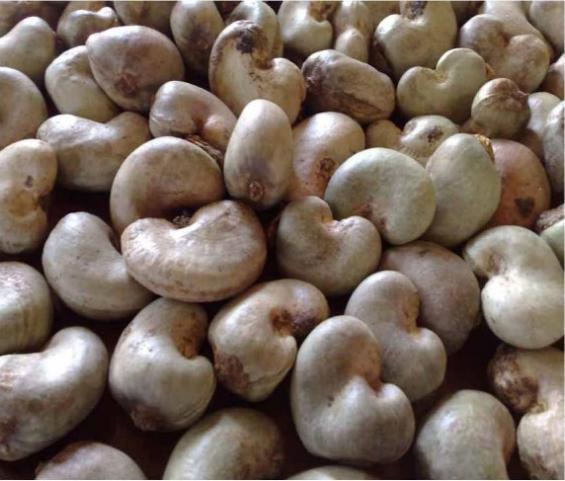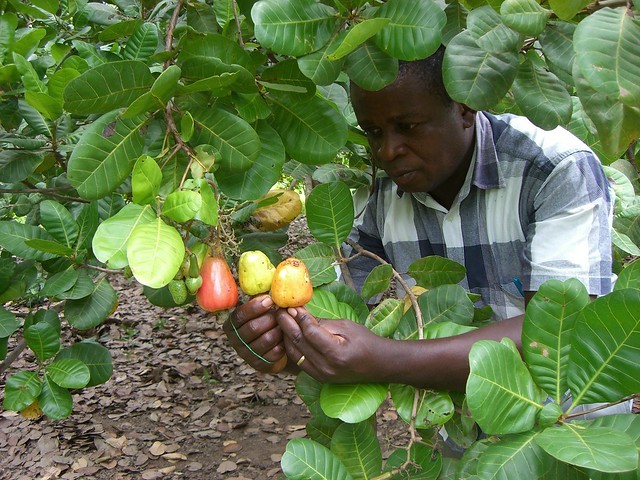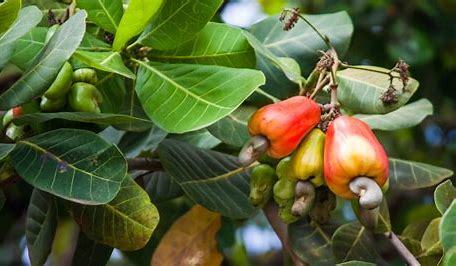
LINK:https://opinion.huanqiu.com/article/4E4xnY6iezG
Republic of Benin
The republic of Benin, formerly known as Dahomey, is one of Africa's more stable democracies. A small country located in West Africa, it is bordered by Togo to the west, Nigeria to the east, Burkina Faso to the north-west, and Niger to the north-east. However, on the economic side, the picture looks less bright. Benin is severely underdeveloped, and corruption is rife.
While the country has experienced significant economic growth over the past few years and is one of Africa's largest cotton producers, it ranks among the world's poorest countries. To the north, there have been sporadic clashes along Benin's border with Burkina Faso. The trouble has been blamed on land disputes between rival communities on both sides of the border.
Republic of Benin: Facts
· Capital: Porto-Novo
· Area: 114,763 sq km
· Population: 13.7 million
· Languages: French, also Fon, Yom, Yoruba, Gun, Baatonum, Biali, Dendi, Fulfulde
· Life expectancy: 60 years (men) 63 years (women)
Benin’s Economic Overview (2023)
Benin’s economy is still heavily reliant on agriculture and on formal and informal reexport and transit trade with Nigeria. Food processing industry is the major driver for Benin as it’s an Agro-based economy. The year 2022 was marked by a slight slowdown in growth to 6%, after a strong rebound in 2021 to 7.2%. Agricultural production, particularly cotton, and the services sector boosted the growth rate. Inflation accelerated to 2.5%, but remains moderate compared to the regional average, attributed to targeted and temporary fiscal measures and good food crop production.
The history of cashew production in Benin
The history of cashew production in Benin dates to the early 20th century, when the first cashew trees were introduced to the country. A few enterprising farmers saw the potential of these delicious and versatile nuts and began planting cashew trees throughout the country. As the trees grew and produced their first crops, word of Benin’s tasty cashews spread far and wide, and soon, the country was exporting small quantities of the nuts to other parts of the world.

Benin Origin Cashew Nut
Source: Indiamart.com
ABOUT CASHEW FARMING IN BENIN
Cashew production is a key contributor to Benin’s agricultural sector, with the country ranking as one of the top cashew-producing nations in the world. According to data from the International Trade Centre, Benin exported over 50,000 metric tons of cashews in 2021, with a total value of over $100 million. The vast majority of these exports went to India, Vietnam, and the European Union, with smaller amounts going to other countries in Africa and Asia. With a focus on sustainability and quality, Benin is quickly becoming a major player in the global market for these delicious and versatile nuts.
Benin is typically the world’s eighth-largest cashew-producing country and production in 2022 is estimated at around 160,000 mt. In terms of value, cashew nuts are Benin’s second most important agricultural export, after cotton, and raked in more than USD 48 million in 2021.
Benin’s top ten Exports
HS Code |
Export USD$ |
(52) Cotton |
$636,855,925 |
(08) Fruit & Nuts |
$52,285,949 |
(12) Oil Seeds |
$50,790,389 |
(72) Iron & Steel |
$50,354,171 |
(27) Oil & Mineral Fuels |
$37,336,732 |
(23) Animal Feeds |
$33,361,787 |
(44) Wood |
$30,639,232 |
(15) Fats & Oils |
$21,917,402 |
(84) Industrial Machinery |
$16,138,535 |
(71) Precious Stones & Metals |
$15,315,228 |
The country has seen a consistent significant increase in cashew nuts production between 2010 and 2021, becoming one of the highest producers of Raw Cashew Nuts (RCNs) on the African continent. This has made cashew a major economic commodity for the West African country. Why the cashew nut sector stands out as one of the highest value-added flagship sectors featuring the Government's Action Programme (GAP, 2016-2021) is because of its:
a) High potential to contribute to employment and income generation;
b) Contribution to food and nutritional security; and
c) Great export potential.
Several factors contribute to the success of the cashew economy in Benin;
a) Many small producers received monetary support to invest in cashew cultivation as part of the national development strategy of promoting export-oriented economic sectors.
b) The large and growing rural population provides a continuous supply of labor.
c) Cashew nuts are in high demand on the global market, and Benin’s market shares have increased to make it the 5th largest producer worldwide.
d) The cashew tree is well adapted to the environment in Central Benin. It requires very little input and can thrive even on poor soils. Hence, it is very well suited for the rehabilitation of degraded lands.
e) Like other afforestation activities, cashew plantations protect against soil erosion, contribute to increasing soil fertility, and create a cooler microclimate.
f) The adoption of “Benin Cashew Day” (BCD), which has succeeded in bringing together cashew stakeholders, actors, and development partners to discuss major industry issues, especially on matters relating to marketing systems of Raw Cashew Nuts (RCNs) and increasing the competitiveness of the industry in Africa.
g) BCD has also become a platform where various support models of the sector are studied and analyzed with the aim of building a more vibrant sector in Benin.
h) The event, according to CoNEC and IFA has helped improve the system of group sales and strengthened business linkages among various cashew associations.
i) The event has also established “a system of identification of the stakeholders within the interprofession” and “a system of accreditation of testing and monitoring of quality control of raw nuts for export” in Benin.

A cashew farmer in Benin
Source: Flickr.com
However, some challenges remain;
a) There is a lack of proper and robust supply chain linkages as seen in many countries. There is need to properly link producers, processors and traders so that collectively the industry can become sustainable.
b) There is a need for systems to be in place that will rapidly increase processing capacity within Benin and incentives for investments into the processing segment of the value chain.
c) Cashew nut farming, given its perennial nature is mainly dominated by men because of women's limited access to land, which is a major constraint to their access to production. It is estimated that 90% of the plantations are owned by men. The presence of women in the sector as regards the production function is 10%, mostly comprising smallholders. Overall, women process, market and distribute the processed products since they have more expertise in conquering the market and the consumer.
d) Lack of investment in processing infrastructure and equipment. Without the necessary facilities and technology, it is difficult for producers to efficiently and effectively process large quantities of cashews, leading to a low processing rate in the industry
e) Many of the workers in Benin’s cashew industry are smallholder farmers who lack the training or experience to work in processing facilities.
f) This lack of skilled labor further hinders the efficiency and competitiveness of the industry.

Overall, the future of the cashew industry in Benin looks bright. TheWest African country of Benin is a success story in making as it embarks upon a mission to process its agro commodities within the country instead of exporting them in raw form. In an ambitious move to boost cashew processing in Benin, the government has banned raw cashew nut exports from April 1st, 2024 to ensure domestic processing capacity is developed.
Additionally, the government and private sector have recognized the potential of the cashew industry and are investing in the infrastructure and support needed to help it thrive. With a focus on sustainability, quality, and social responsibility, Benin’s cashew industry is well-positioned to take advantage of the growing demand for these delicious and versatile nuts.
REFERENCES:
1. Benin - Cashew Nuts Sector and Agricultural Entrepreneurship Development Support Project, African Development Bank Group, 2022
2. Food and marketing technology Indian edition, 2023 report
3. https://www.worldbank.org/Accessed: 1/1/2023
4. https://comtrade.un.org/(2021)
5. https://gdiz-benin.com/sino-benin-noix-de-cajou-to-set-up-factory-at-gdiz/
6. Bello O.D. (2021). Effect of climate change, genotype-environment (GxE) interaction and adaptation strategies on cashew (Anacardium occidentale L.) cultivars productivity in Benin, Thèse de Doctorat unique en Sciences Agronomiques, FSA/UAC, Bénin